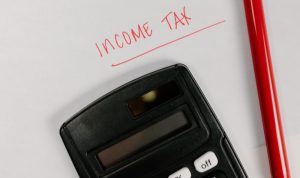The North Carolina corporate income tax is once again the topic of a heated debate as Democratic lawmakers and advocacy groups call for its retention, arguing that those who benefit from operating in the state should contribute their fair share toward public services.
In 2021, the Republican-controlled legislature passed a budget law to phase out the corporate income tax by 2030, starting with a decline to 2.25% in 2025. The move has been met with resistance from the opposition; concerned groups want to keep the current corporate income tax intact to address deficiencies in public education, affordable housing and healthcare.
According to the North Carolina Department of Revenue, corporate income tax collections made up about 5% of North Carolina's $27 billion in collections during the 2020-2021 fiscal year. However, proponents of retaining the tax argue that companies that benefit from the state's amenities and infrastructure should pay their fair share toward providing necessary public services.
The North Carolina Chamber of Commerce suggested that it would be willing to waive a zero rate if it meant revenue could be used to improve childcare options for the state's workforce statewide. This compromise emphasizes the notion that the state is looking to strike a balance between providing businesses with competitive tax rates and ensuring that essential public services are adequately funded.
Republican lawmakers argue that individual and corporate tax reductions have contributed to the state's strong economy, resulting in excessive collections to fund services. Some GOP legislative leaders are even considering accelerating income tax reductions within the 2021 budget law. Republicans need one more House seat to hold veto-proof majorities in both chambers, supplying them with leverage in talks like these.
The debate highlights the challenge lawmakers face in balancing the government's urge to take care of their local businesses with the provision of essential public services. While a competitive tax rate is important for attracting investment to the state, ensuring that vital public services are adequately funded by corporate entities contributing their fair share is equally important.






















